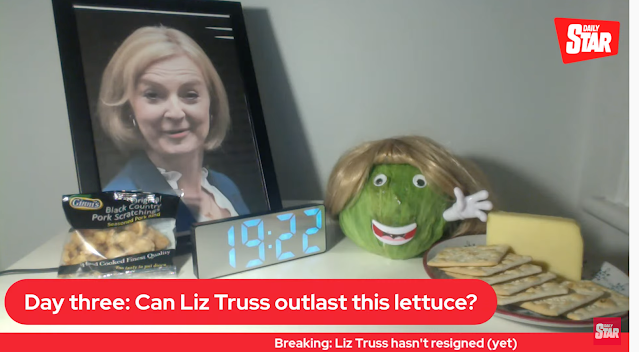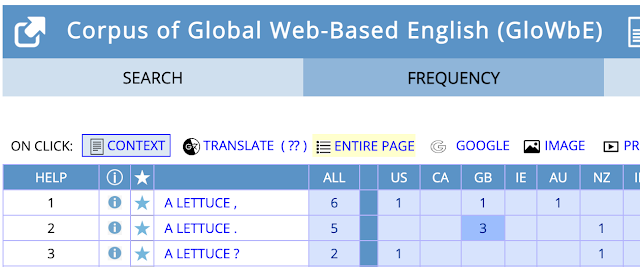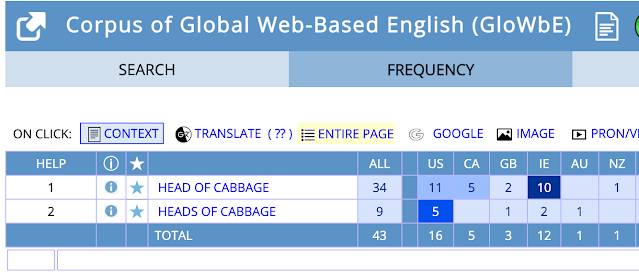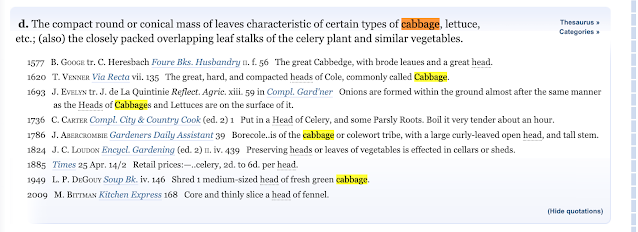UPDATE, 20 Oct 2022: The lettuce won!
The less I say here about the current state of British politics, the better for all of us, but I've had some requests to write about the question:
Can Liz Truss outlast a lettuce?
Truss is, at the very moment I'm writing this, the UK Prime Minister. This might not be true at the moment when you read this. And once she's gone, I assume The Daily Star will stop its livestream of decomposing lettuce in a wig, so I'll post a screenshot of it here, rather than the livestream itself.
 |
Oh wait, Lettruss has an early bedtime! Here's another screenshot.
I wonder how much she gets up to in a day? (Note to self: must resist watching PM Lettucehead instead of working.)
Lettuce Watch got started after The Economist published this unusually straightforward description of Truss's premiership and dubbing her "The Iceberg Lady."
Social media got wind of this all, as did US news outlets, and soon Americans wanted to know: who says a lettuce?
(Oh wait, now she's got a disco ball!)
While there's a lot of discussion on names of lettuce types in the comments of my big ol' vegetable post, no one there mentioned the countability problem. That is: for most Americans, lettuce is a non-countable noun. You can have some lettuce, but not a lettuce. If you want to talk about the thing that's been compared to Liz Truss, in AmE you'd need what is sometimes called a partitive noun, like head: a head of lettuce.
BrE is happier than AmE in calling the thing a lettuce. I'm afraid the numbers on this corpus result are very small because I had to search for "a lettuce" only before punctuation, so that I didn't accidentally get cases of a lettuce leaf or a lettuce sandwich, etc.
The first US hit is a weird sentence from a suspended-by-Wordpress blog, so I'm not sure it was really written by an AmE speaker. The other is: "You are what you eat, but who wants to be a lettuce?" The British ones include feeding an animal "a lettuce" and putting another ingredient in "the heart of a lettuce". The numbers are small, but they are leaning British and the British examples are more clearly about literal lettuce.
Cabbage tends the same way, but with more examples:
And in case you're wondering, this is not because lettuce or cabbage are mentioned twice as much in UK:
If you can have a lettuce, that is, if it is countable for you, then it is natural for you to talk about two or more lettuces, and we can see here that BrE does that a lot more than AmE does. In AmE, you can talk about two lettuces but it will almost inevitably be interpreted as 'two kinds of lettuce', for example: I am growing two lettuces this year: iceberg and romaine. You could say two lettuces in BrE and mean 'two kinds of lettuce', but you could also use it to mean two 'heads' of one kind of lettuce, as in How many iceberg lettuces do you want me to buy?
Meanwhile, head of seems much more American than British (though Irish English seem to like it for cabbages).
This isn't because the US or Ireland made up head of—it dates way back in English-English:
But head of has clearly been more AmE than BrE since the mid-nineteenth century:
You may be able to think of other examples of AmE & BrE differing in whether they treat a noun as count or non-count. Click through here to read blog posts about some of them.
In case you're wondering about the other items in the screenshots:
- The (AmE) bag/(BrE) packet of (BrE) pork scratchings is similar to (AmE) pork rinds, but apparently a bit different.
- I've covered (BrE) paracetamol at this old post.














comment-catching comment
ReplyDeleteI, a Brit, would never say or interpret (before now) "two lettuces" to mean two types of lettuce. Two lettuces would be two heads of lettuce. They might be of different kinds.
DeleteFor me (AmE, western New England, GenX) "lettuce" isn't countable, but "cabbage" definitely is.
ReplyDeleteThis seems to be standard AmE - consider the running "my cabbages" joke in Avatar: The Last Airbender.
(As I understand it, American children's cartoons work fairly hard to be standard AmE unless a character is supposed to have an accent - to the point where scripts are rewritten to avoid words with a Canadian Raise when they're using Canadian voice actors.)
A lettuce sandwich? Just lettuce?
ReplyDeleteApart from a few herbs and spices (tumeric, garlic, dill, arrowroot, fennel etc) I (BrE) can only think of 6 vegetables which I would use partitively: asparagus, celeriac, chicory, cress, garlic and spinach.
ReplyDeleteWhoops! I hit publish too quickly. The second appearance of garlic should read broccoli
ReplyDeleteMaybe we don't say a broccoli because it is - in the original Italian - plural. It should be one broccolo, two broccoli. Compare macaroni, spaghetti etc. And I once heard someone (at Glydebourne opera no less) asking for two capuccini.
DeleteThe lettuce won!
ReplyDeleteSo interesting. I think I've said "a head of lettuce" but I'm pretty sure I've never said, "a head of cabbage". Hm.
ReplyDeleteThankyou. This is odd, and I've never noticed it before. I'm a BrEnglish speaker. I can talk happily about a lettuce, a cabbage, a carrot, a bean, an orange, an apple, a banana, a cherry (as in 'a cherry on top'), etc. etc. etc.. That seems to go for any fruit or vegetable, large or even small that can have an individual existence, irrespective of whether one normally eats them one at a time or, like, say, peas several. And one can put a number in front of them, as in three lettuces or three strawberries. So why, to me, do 'a broccoli' and 'three broccoli' sound wrong? I'm having difficulty thinking of any others that sound wrong, and even more difficulty thinking up an explanation.
ReplyDelete
Deletesome others that sound wrong:
a celeriac
a celery
a chard
a chicory
a fennel
a garlic
a ginger
a kale
a spinach
My guess is "a broccoli" sounds wrong because we don't usually encounter a whole head of broccoli, but pieces cut off a head of broccoli. When talking about a piece of broccoli, it's something we've cut off a larger unit. A head of lettuce is the base unit of lettuce, so if something's going to be "a lettuce", it's going to be a head of lettuce. But the base unit of broccoli, for most of us, in how we think of it, is going to be a smaller, cut piece, which doesn't have an individual existence until we cut it.
ReplyDeleteAlthough, "a carrot" works for me for a slice of carrot. And a cut part of a green bean can be "a green bean". So not an absolute.
" The time has come,' the Walrus said,
ReplyDeleteTo talk of many things:
Of shoes — and ships — and sealing-wax —
Of cabbages — and kings —
And why the sea is boiling hot —
And whether pigs have wings.' - Lewis Caroll
This comment has been removed by the author.
ReplyDeleteNot totally off topic, but in BrE both “lettuce” and “cabbage” are used as slang words for something else - I’ve heard “lettuce” (also “lettuce leaf”) used as slang for a woman’s private parts, eg. “He walked into the bathroom while I was wiping my lettuce - how embarrassing!” Also, “cabbage” can be used to describe someone in a vegetative state or a coma (this may be dated now and/or considered offensive), eg. “After he had a stroke, Joe was just a cabbage. Poor man.”
ReplyDelete"Cabbage" can also mean "snippets of cloth appropriated by a tailor from a customer's material" (definition from Collins)/.
DeleteI (native Dutch speaker) would have absolutely no trouble with mentioning "a lettuce". [E.g.: Get me a lettuce, please.] Which is strange, because the Dutch equivalent is "een krop sla" which corresponds quite neatly with "a head of lettuce".
ReplyDelete"Een sla" is impossible, unless you mean "a salad" and even then you should use the diminutive if you want to be understood: "een slaatje".